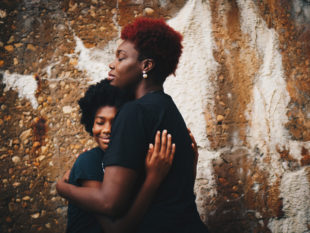How to Build Trust in a Relationship
Christian Counselor Spokane
From the moment we are brought into this world, unknowingly we are introduced to the concept of trust. From early childhood to young adulthood to adulthood, and even into our elderly years, we continue to walk through the concept of trust.
Trust is all around us. Every person you meet, every place you go, even within our faith, we face the significance of trust. When you see or hear the word “trust,” you may associate it with a sense of gratefulness or with memories of deep afflictions. There can be great uncertainty about who to trust, when to trust, how to trust, and why we trust.
As an adult, you may struggle in relationships due to trust issues. You begin to ask yourself, Why can’t they be understanding? Why can’t they just tell the truth? You also might begin to make accusations based on no proof. Although trust helps us to stay alive by learning who to trust, it can also help us to have healthy and happy relationships with yourself and with others.
 Everyone has experienced some form of trust issues, some more extreme than others. Once trust has been broken you try your hardest to protect your heart from receiving pain, hurt, and betrayal again. You develop a self-defense mechanism were no one can break it down. There comes a time when you realize the effects it’s having on past and present relationships.
Everyone has experienced some form of trust issues, some more extreme than others. Once trust has been broken you try your hardest to protect your heart from receiving pain, hurt, and betrayal again. You develop a self-defense mechanism were no one can break it down. There comes a time when you realize the effects it’s having on past and present relationships.
In this article, I will discuss the meaning and concept of trust and how to rebuild trust in any relationship.
What is Trust?
One of the most common relationship issues individuals faces is trust. Whether it may be the most basic form of trust, relational trust, self-trust, emotional trust, physical trust, mental trust, environmental trust, and spiritual trust, trust is an important factor in any healthy relationship. Each person has their own interpretation of what trust means and their own foundation on which trust has been established.
A basic understanding of trust is the act or firm belief in someone or something based on truth, reliability, and honesty. Those who struggle with trust most commonly have been hurt in the past. Betrayal, humiliation, and fear begin to consume you, making it difficult to have or build new relationships.
Never assume each person understands and believes in trust the same way you believe in trust and how it should be shown. Remember, trust takes time to build or rebuild, but it only takes one event or mistake to be broken. Once broken, trust isn’t easy to gain back.
Erik Erikson, a psychoanalyst well-known for his eight stages of Social-Emotional Development, theorized that man needed to satisfy each stage before moving on to the next stage. If a conflict arose during any of the eight stages, the person must successfully deal with the conflict before moving on to the next stage.
 The first stage of development begins during infancy through the first one to two years of life. In this stage, man is learning Basic Trust versus Basic Mistrust. As children, we learn whether or not we can trust the world around us.
The first stage of development begins during infancy through the first one to two years of life. In this stage, man is learning Basic Trust versus Basic Mistrust. As children, we learn whether or not we can trust the world around us.
If a child is well nurtured and loved, he or she develops “Basic Trust” and security. If a child is raised without being nurtured or loved, he or she develops “Basic Mistrust” and insecurity. Without the right nurturing or corrective actions, a person can continue to show mistrust well into their adulthood years. This can become problematic when building or rebuilding relationships with others.
Common Signs and Symptoms of Trust vs. Mistrust
The moment trust or mistrust has been established during infancy, a foundation is created. Our life experiences thereafter can impact the way we interpret trust and how we respond to relationships.
If you are unsure whether you have trust issues, below are some signs and symptoms of trust vs. mistrust:
- Honesty vs. Dishonesty
- Loyalty vs. Disloyalty
- Confidence vs. Skepticism
- Courage vs. Fearfulness
- Worthiness vs. Worthlessness
- Security vs. Insecurities
- Belief vs. Disbeliefs
- Faithfulness vs. Faithlessness
- Dependable vs. Undependable
- Hope vs. Doubt
- Happiness vs. Depression
- Insert vs. Withdraw
Symptoms of Mistrust
- Difficulty getting close to others
- Constant thoughts of suspicion or paranoia
- Rapid, intense relationships that end
- Constant thoughts of spouse or partner cheating on them
- Unrealistic expectations of others
- Sabotaging one’s own happiness
- Issues with being vulnerable
- Strong urges to be in control of anyone and anything
- High levels of anxiety
Don’t be discouraged if you believe you had or may have a mistrustful foundation or trust issues. With the appropriate steps and guidance, you can learn to trust for the first time or learn to trust again!
In order to regain trust or learn to trust someone for the first time, you must first assess and process the events that occurred in past or current relationships that led you to lose trust.
Where Do Trust Issues Come From?
 There are numerous reasons a person might develop trust issues. Our early stages of life determine what type of trusting foundation we will have. If a child lacks the nurturing and love required to instill security and love, then most likely the child will grow up with a mistrustful foundation. The relationships we have as children with our parent(s) or caretaker(s) set us up for future relationships.
There are numerous reasons a person might develop trust issues. Our early stages of life determine what type of trusting foundation we will have. If a child lacks the nurturing and love required to instill security and love, then most likely the child will grow up with a mistrustful foundation. The relationships we have as children with our parent(s) or caretaker(s) set us up for future relationships.
Mistrust can lead to dreadful side effects. Below are some examples of events that may cause you to develop trust issues:
- Parental divorces
- Lack of love, affection, or attention from parental figures or caretakers
- Loss of a significant person (family, friend, spouse, co-worker)
- Put up for adoption/ being adopted
- History of abuse (physically, mental, emotionally)
- Known someone close to you with addiction (drug, alcohol, gambling)
- Previous marital affairs or partner cheating on you
- Previous abandonment by a significant person
- History of low self-esteem, confidence
It’s difficult to trust again due to the fear of being hurt. Your guard is up, and you make pre-judgements of anyone or anything around you to ensure your own safety emotionally, mentally, physically, and spiritually. Trust issues can dictate how you respond to others and the relationships you have thereafter.
For example, if you experienced a parental divorce as a child, during your adult life, you might protect your heart by not finding a spouse or partner, assuming your own marriage will end in a divorce. Understanding the root cause of where your mistrust began is the first step to rebuilding trust back into your life.
How to Build or Rebuild Trust in A Relationship
 Remember not to be hard on yourself! There is a reason you may be having or experiencing trust issues. It may seem hard for you to have healthy relationships with others, but keep in mind that it may also be hard for others to have relationships with you.
Remember not to be hard on yourself! There is a reason you may be having or experiencing trust issues. It may seem hard for you to have healthy relationships with others, but keep in mind that it may also be hard for others to have relationships with you.
If you’re looking to rebuild trust from an existing toxic relationship or to build trust for the first time, you must first create a new foundation — one that is based on honesty, loyalty, and commitment. Remember words, promises, and gifts do not restore trust in a relationship, no matter how many gifts you receive or promises they make. It is the trustworthy behaviors and actions that show and prove trust to others.
Ways to help build trust in your relationships
- 100% honesty
- Never lie! – this includes white lies
- Open communication – if you are unsure of something, always clarify
- Consistent reassurance
- Always show respect
- Be aware of your own and the other person’s boundaries
- Active listening – validate what the person is saying
- Patience! Patience! Patience!
- Be on time – home, events, family functions
- Commitment – make sure you do what you say you will do
- Always be fair – in arguments or disagreements
- Be sensitive to the other persons feelings – never discount how they feel
- Be considerate – if you’re going to be home late, call and let the person know
- Never over react – emotions can get the best of some people
- Think before you speak – words hurt; once you say something you can’t undo what has been said or the effects it may have on the other person
- Never bring up the past – the past is the past; leave it there
- Discuss your daily lives – talk about the events that happened at work
- Talk about your secrets – the more you learn about the other person, the stronger your relationship becomes
When starting a new relationship or rebuilding an existing one, it’s important to identify where the trust issues began. Communication is a key factor when learning to deal with relationship issues. Communicate to the other person what you want from them. If it’s validation, ask the individual to send validations your way.
Let them know this is what you need to help gain trust or to rebuild trust again. Remember they are not a mind reader. The person you are working through trust issues with will not know what you need and how you need to receive things. It will likely take a lot of trial and error before you find what works for you and the relationship.
It is also important to look at your trust issues from another point of view. Stop looking at trust issues as self-protection, but as a way to filter out healthy versus unhealthy relationships in your life. Take what you have learned in life and embrace the positive and safe understandings of trust.
The Positive Effects of Christian Counseling
Like any personal or emotional relationship you invest in, finding the right therapist you can connect with and trust can help you resolve any relationship issues you may have. Through effective Christian counseling, you can learn to trust again with the help of your counselor and the work of God.
Breaking down your past and pinpointing where the trust issues began are the first steps toward rebuilding trust again. It is never too late to rebuild and boost positive trust in yourself and in others.
Building trust in any relationship takes time and patience. As you and your counselor walk through your past together in a safe and judgement-free place, remember you are on your way to a happier and healthier life. It may seem scary at first to open old wounds and to feel the loss, pain, hurt, and betrayal but in the end, it really is worth it.
You spend your life guarding your heart from pain, loss, and disappointment. Every second you take to pre-judge a person or situation is draining you emotionally, mentally, physically, and spiritually. Lean on God during your time of healing. Let Him take your worries and pain.
Trust in Him even when all trust seems lost. Not only will you come out learning to trust yourself and those around you, but you can have a healthy and happier relationship with those in your life and with God. “Commit your way to the Lord, trust also in Him, and He shall bring it to pass” (Psalm 37:5).
Conclusion
A healthy relationship needs trust and will continue to grow and blossom the older you get. In life, we all experience trust and the effects it can have on our daily relationships. We create new relationships while continuing current ones.
Each relationship we form is different from one another in the way we show trust. For some, mistrust is the foundation to future relationships due to a lack of nurturing and security. For others, mistrust may come from toxic relationships with friends, family members, or spouses or partners, to name a few. It’s important to be aware of those issues as it can affect current and future relationships.
If you have or are experiencing trust issues, it’s never too late to learn how to trust again. Open communication, consistency, commitment, and loyalty are some ways to rebuild trust in any relationship. It may take time and a lot of patience but choosing to work through the pain and hurt will lead to a happy and healthy relationship. Give yourself and those close to you a chance!
ReferencesRussell, N. S. (2012, June 30). 10 Behaviors that Demonstrate Trust. Retrieved September 27, 2017, from https://www.psychologytoday.com/blog/trust-the-new-workplace-currency/201206/10-behaviors-demonstrate-trust
Sorgen, C. (n.d.). 7 Solutions That Can Save a Relationship. Retrieved September 27, 2017, from http://www.webmd.com/sex-relationships/guide/7-relationship-problems-how-solve-them#4
Staff, P. T. (2011, September 10). Know What To Expect! The 8 Stages Of Social Development In Children. Retrieved September 27, 2017, from https://childdevelopmentinfo.com/child-development/erickson/#.Wcf8h9uZMWo
Trust Issues: 7 Major Signs You Can’t Ignore! (2016, September 26). Retrieved September 27, 2017, from http://www.couplescounselingchicago.net/trust-issues-7-major-signs-you-cant-ignore/
Photos
“Together,” courtesy of Pablo Heimplatz, unsplash.com, CC0 License; “Mama/Daughter Bond,” courtesy of Eye for Ebony, unsplash.com, CC0 License; “Learning to Walk,” courtesy of Guillaume de Germain, unsplash.com, CC0 License; “Trust Me,” courtesy of Jeremy Wong, unsplash.com, CC0 License





